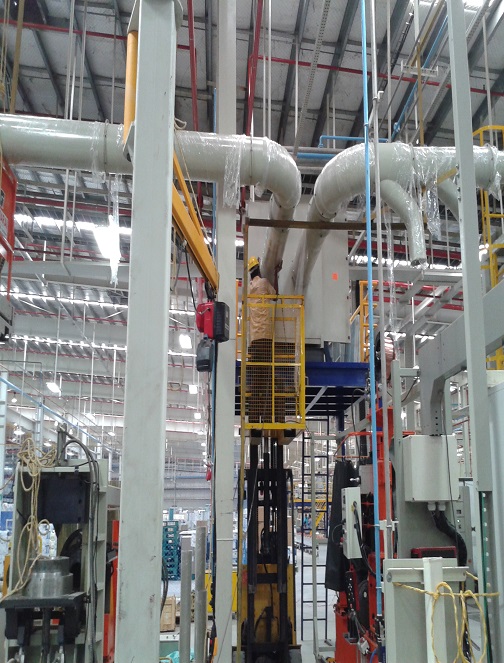In the pharmaceutical industry, maintaining a contaminant-free environment is of utmost importance. The production of pharmaceuticals involves various processes that can generate pollutants such as dust, fumes, and volatile organic compounds (VOCs). Effective air pollution control is crucial to ensure the quality and safety of pharmaceutical products, protect worker health, and comply with stringent regulatory standards. Powertech Pollution Controls provides advanced air pollution control solutions specifically designed to meet the unique challenges of the pharmaceutical industry.
Air pollution control in pharmaceutical manufacturing is essential for several reasons. Firstly, the presence of airborne contaminants can compromise the purity of pharmaceutical products. Contaminants such as dust and fumes can lead to cross-contamination, affecting the efficacy and safety of medications. This not only poses a risk to patients but also results in significant financial losses due to product recalls and regulatory penalties. By implementing efficient air pollution control systems, pharmaceutical companies can maintain high standards of product quality and minimize the risk of contamination. Worker safety is another critical concern in the pharmaceutical industry. Prolonged exposure to the pollutants can lead to respiratory problems, skin irritation, and other health issues. Effective air pollution control systems capture and remove these contaminants at the source, ensuring a safer working environment and protecting employee health. This not only enhances worker well-being but also boosts productivity and morale.
Regulatory compliance is a key driver for air pollution control in the pharmaceutical sector. Regulatory bodies such as the U.S. Food and Drug Administration (FDA) and the European Medicines Agency (EMA) impose strict guidelines on air quality in pharmaceutical manufacturing facilities. Non-compliance with these regulations can result in severe penalties, including fines, shutdowns, and loss of manufacturing licenses. Advanced air pollution control systems from Powertech Pollution Controls are designed to meet and exceed these regulatory requirements, providing pharmaceutical companies with the assurance of compliance and peace of mind.
Powertech Pollution Controls offers a range of air pollution control solutions tailored to the needs of the pharmaceutical industry. Our products include high-efficiency dust collectors, fume extractors, and mist collectors that effectively capture and neutralize airborne contaminants. Each system is engineered to provide optimal performance, energy efficiency, and ease of maintenance, ensuring reliable and cost-effective operation.
One of our flagship products for the pharmaceutical industry is the DustBag Reverse-Pulsed-Jet self-cleaning dust collector. This advanced system uses reverse-pulsed-jet technology to clean the filters automatically, ensuring continuous and efficient dust collection. The system is particularly effective in capturing fine dust particles generated during processes such as tablet coating, powder mixing, and granulation. Its high-efficiency filters ensure that even the smallest particles are captured, preventing contamination and maintaining air quality within the facility.
In addition to product quality and regulatory compliance, air pollution control also contributes to environmental sustainability. Pharmaceutical manufacturing can have a significant environmental impact due to the emission of pollutants. By implementing efficient air pollution control systems, pharmaceutical companies can reduce their environmental footprint and contribute to cleaner air and a healthier planet. This aligns with the growing emphasis on corporate social responsibility and sustainable business practices. By investing in state-of-the-art air pollution control systems, pharmaceutical manufacturers can achieve operational excellence, safeguard their workforce, and contribute to a sustainable future. For more information on our solutions for the pharmaceutical industry, please visit our product page or contact us here.





